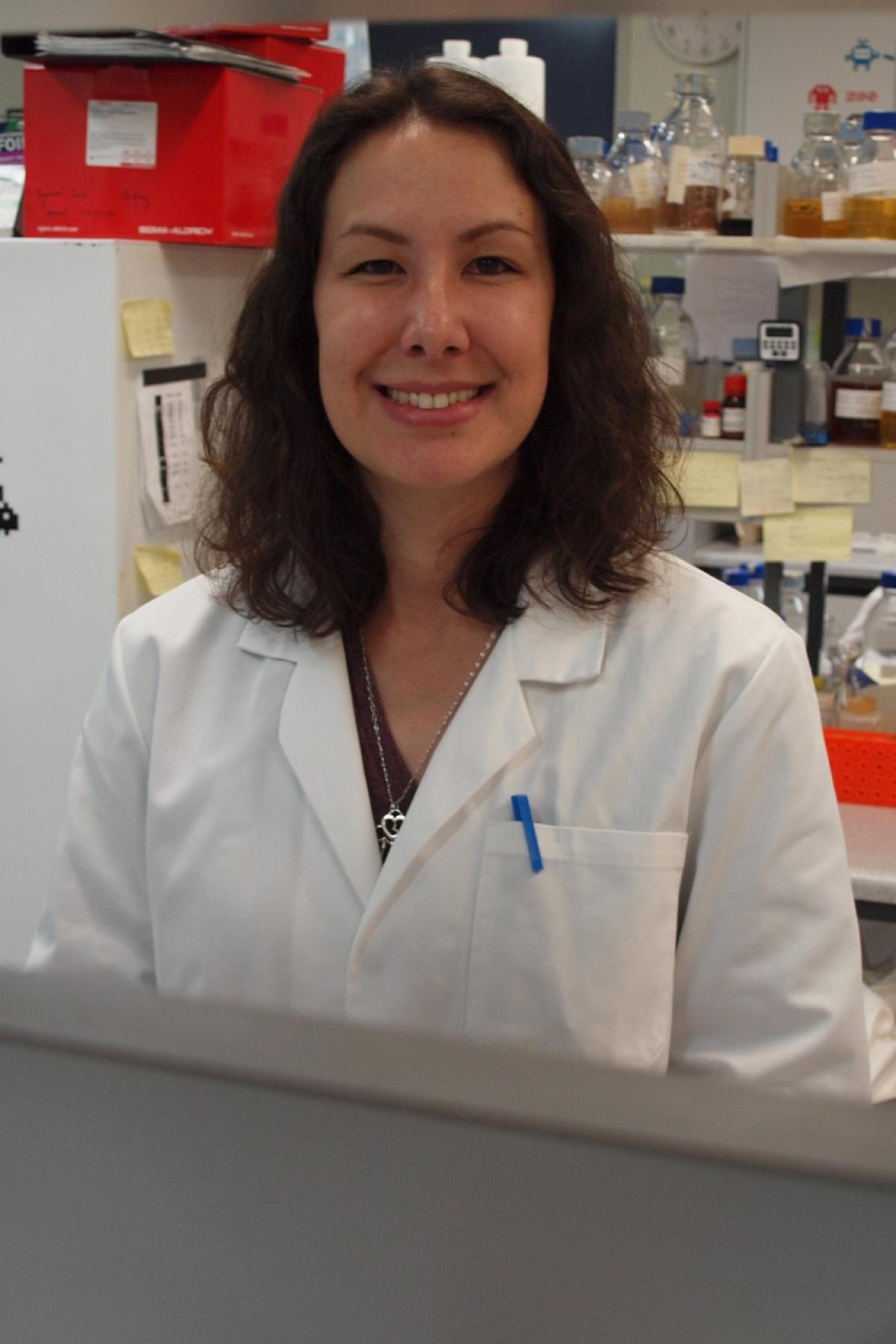Dr Stephanie Watts-Fawkes’ research goes full circle - from soil to food

Dr Stephanie Watts-Fawkes is looking forward to returning to Waite campus to continue her research into mycorrhizal fungi after receiving her Future Making Fellowship.
Armed with an Australian Research Council DECRA and the University of Adelaide supported fellowship, Stephanie will make her way back to Adelaide Waite Campus early December since she spent some time there as a Ramsay Fellow up to 2020. Stephanie has just recently been in the field for the New South Wales Department of Primary Industries for a year. Although she enjoyed working closely with industry and growers in that role, she is – in her own words - absolutely stoked to be looking forward to six years of researching her passion projects with the end goal to make more nutritious food for humans, via increasing nutrition pathways in cereal plants. Stephanie: “the link really is the grain itself – if we find ways to increase nutrition uptake by plants through mycorrhizal fungi, we can potentially improve the nutrition these plants can deliver to us, in the form of food, too.”
It was never a surprise for Stephanie that her life would revolve around researching nature and plants. As a kid she loved science and was a great collector of anything of the natural world: “I’ve just always been fascinated by plants, I had leaf collections and used to press flowers to preserve them. I was just pretending to be a botanist really.” The fascination kept her going through university and in time placed her at the intersection between plant and soil science. The true lightbulb moment for her career as a researcher came during her PhD and a research visit to Denmark. She learnt to use radioactive isotopes to trace the pathway of uptake of nutrients into plants through the mycorrhizal pathway, and made the technique truly her own when she came back to Australia. Initially learning how to track the uptake of phosphorus, Stephanie then applied her new experience with isotope tracers to track the uptake of soil zinc through the mycorrhizal fungi into the plant – quantifying it for the first time. Learning from pioneers, making techniques her own and extending this to novel research brought the true excitement of research.
“Using this technique [to trace nutrient uptake in plants] for my own interests, with zinc, was really exciting and something I’m hoping to continue with the Future Making Fellowship by developing a technique to use stable isotopes to no longer have to rely on the hazardous radioisotopes.”Dr Stephanie Watts-Fawkes
Stephanie feels like she can really hit the ground running once she has made the move back to Waite campus. She feels like the move is a bit like coming home, but also an opportunity for exciting new steps in her work as it truly spans across the agriculture and food disciplines; researching soil fungi to increase the nutritional value of plants in order to improve human nutrition. She is excited about increasing her network as well as working with some familiar faces: “It’s great to have the chance to work with Rachel Burton, who is already really traversing that plant and food science boundary, but it’s also equally as exciting to continue working alongside Tim Cavagnaro who was my PhD supervisor and now co-supervises PhD students with me!”.
Stephanie will start at Waite campus on Monday December 6. More information on Stephanie's research can be found here and her research profile here.
Written by Lieke van der Hulst, 2/12/2021
